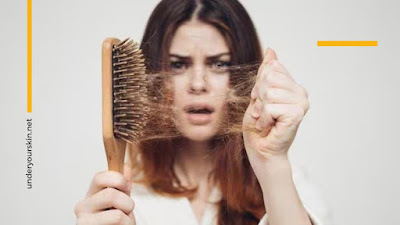Navigating Health Beauty: Preventing Hair Loss During Menopause
Health beauty is a holistic journey that encompasses not only physical appearance but also overall well-being. As individuals age, they may face various challenges, one of which is hair loss during menopause. In this article, we will delve into the factors impacting health beauty, with a specific focus on how to prevent hair loss during menopause. We'll explore the benefits, tradeoffs, challenges, and emphasize the importance of considering timing when making decisions about health beauty.
Understanding Health Beauty
Health beauty goes beyond skin-deep appearances. It encompasses a wide range of factors, from maintaining good physical and mental health to nurturing vibrant, youthful skin and hair. As women enter menopause, they often experience a range of changes, and one of the most common concerns is hair loss.
Preventing Hair Loss During Menopause
Hair loss during menopause is often related to hormonal changes, and preventing it involves a multifaceted approach. Here are some strategies to consider:
1. Nutrition: A well-balanced diet rich in essential nutrients like biotin, iron, and protein can support healthy hair growth.
2. Scalp Care: Regular scalp massages and gentle, sulfate-free shampoos can promote a healthy scalp and strong hair.
3. Hormone Replacement Therapy (HRT): For some women, HRT can help balance hormonal fluctuations and reduce hair loss. Consult with a healthcare provider to assess the risks and benefits of HRT for your specific situation.
4. Over-the-Counter Treatments: Minoxidil and certain topical treatments may help slow hair loss and stimulate regrowth.
5. Professional Advice: Consulting with a dermatologist or trichologist can provide personalized guidance and treatment options tailored to your specific condition.
Tradeoffs
While taking steps to prevent hair loss during menopause offers benefits, there are tradeoffs and considerations to keep in mind:
1. Individual Variation: What works for one person may not have the same effect on another. The effectiveness of preventive measures can vary based on genetics, overall health, and the cause of hair loss.
2. Time and Patience: Preventing hair loss and promoting regrowth takes time and consistency. Immediate results are not always achievable.
Challenges in Preventing Hair Loss During Menopause
Several challenges are associated with preventing hair loss during menopause:
1. Multiple Factors: Hair loss during menopause can result from a combination of factors, including hormonal changes, genetics, and age. Identifying the primary cause can be challenging.
2. Psychological Impact: Hair loss can have a significant psychological impact, affecting self-esteem and confidence. Coping with these emotional aspects can be challenging.
The Importance of Timing
Timing is a crucial aspect of addressing health beauty concerns, including preventing hair loss during menopause:
1. Early Intervention: It's advisable to start preventative measures before significant hair loss occurs. Early intervention can lead to better outcomes.
2. Consistency: Maintaining a regular routine and being consistent with preventive measures are vital for achieving the desired results.
3. Professional Guidance: Consulting with a healthcare provider or specialist during the early stages of hair loss can help identify the best course of action and treatment options.
Conclusion
Health beauty is an ongoing journey, and preventing hair loss during menopause is just one aspect of maintaining a vibrant, youthful appearance. While it involves tradeoffs and challenges, it is possible to take steps to protect and rejuvenate your hair. Considering the importance of timing and seeking professional advice can help ensure that your health beauty regimen aligns with your unique needs and goals. Remember that healthy hair is not just about looks; it's a reflection of overall well-being.
Like this article? Invite your friends to read :D
